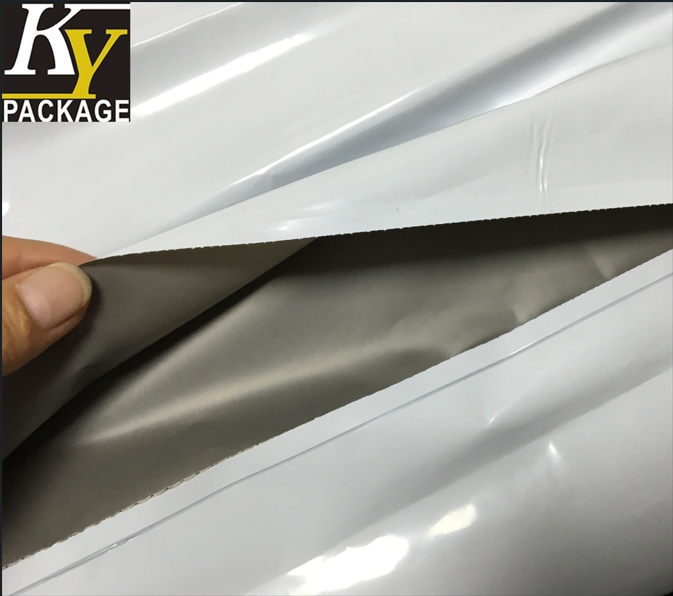Why Are Auto Bags Revolutionizing the Packaging Industry?
2024-12-19
In the fast-paced world of manufacturing and retail, efficiency and speed are key drivers of success. One of the innovations that have significantly contributed to improving packaging processes is the auto bag. But what exactly is an auto bag, and why has it become so crucial in the modern packaging industry?
In this blog, we'll explore the concept of auto bags, how they work, and why they are revolutionizing packaging across industries such as food, e-commerce, pharmaceuticals, and more.
What Is an Auto Bag?
An auto bag refers to a type of pre-made bag used in automated packaging systems. Unlike traditional manual packaging, where workers manually fill, seal, and label each bag, an auto bag system automates this entire process. The bags are typically supplied in a flat form, and the system uses mechanical arms or conveyors to automatically open, fill, seal, and label the bags, significantly reducing labor and increasing throughput.
Auto bags come in various shapes and sizes, and they can be made from different materials such as polyethylene, polypropylene, or other flexible films, depending on the product being packaged. Commonly used in industries like e-commerce, food packaging, and pharmaceuticals, auto bags are available in both stand-up and flat formats, providing versatility in packaging.
How Do Auto Bagging Machines Work?
Auto bagging systems are designed to streamline the entire packaging process. Here's a general breakdown of how an auto bagging machine works:
1. Feeding the Bags: Pre-made bags are fed into the system from a roll or stack, ready to be opened.
2. Bag Opening: The machine automatically opens the bag using mechanical arms, suction, or other methods to create a space where products can be inserted.
3. Filling the Bags: The product is automatically placed into the bag using a conveyor belt or automatic feeder. This can be done with food items, parts, retail goods, or any other type of product.
4. Sealing the Bags: After the bag is filled, the machine automatically seals it using heat or adhesive, ensuring that the contents remain secure and tamper-proof.
5. Labeling and Expiration Date Printing: The machine may also be equipped with a printer to add labels, expiration dates, barcodes, and other essential information to the bag.
6. Final Output: The packed and sealed bags are then ready to be sent for further processing, storage, or shipping.
Why Are Auto Bags Important for the Packaging Industry?
1. Increased Efficiency and Speed
One of the main reasons why auto bags have gained popularity in recent years is their ability to increase efficiency and speed in the packaging process. Automated systems can run continuously, packaging large quantities of products with minimal human intervention. This leads to a significant reduction in packaging time, which is particularly beneficial in high-volume industries.
For example, in e-commerce, where order fulfillment is a key focus, auto bagging systems can pack hundreds or even thousands of orders per day, improving operational efficiency and speeding up the time it takes to get products to customers.
2. Labor Cost Savings
Automating the packaging process with auto bags helps reduce labor costs, as fewer workers are required to handle the packaging. This is particularly beneficial for businesses looking to reduce overheads or faced with labor shortages. Since machines can run 24/7 without the need for breaks, they allow companies to optimize staffing and direct human resources to other areas of production or operations.
In industries where labor costs are high, such as food manufacturing or electronics packaging, the savings from automation can be substantial.
3. Consistency and Quality Control
One of the challenges in manual packaging is ensuring consistent quality and uniformity across all units. With auto bagging systems, the process is highly standardized, reducing the chances of errors, such as underfilled or overfilled bags.
Moreover, automatic sealing and labeling ensure that each bag is sealed tightly and correctly, minimizing product loss and ensuring packaging integrity. This is especially crucial in industries like pharmaceuticals, where packaging integrity is vital for safety and compliance.
4. Space-Saving and Compact Design
Modern auto bagging machines are designed to be compact and efficient, making them suitable for various business sizes and facility layouts. Unlike older manual systems or large machinery, auto bagging equipment can often be installed in smaller spaces, allowing companies to optimize their floor plans and improve overall production flow.
This compactness makes auto bagging systems ideal for smaller businesses or warehouses that need to keep up with larger competitors without sacrificing space or investing in large-scale, expensive machines.
5. Versatility and Customization
Auto bagging systems are incredibly versatile. They can handle a wide variety of products, from small and light items like electronics accessories and pharmaceutical tablets to larger and heavier products like food packages and clothing. The bags themselves can be customized to fit the product, providing brand differentiation and tailored packaging solutions.
Custom bag designs, colors, and materials allow businesses to use auto bags to create visually appealing packages that align with their branding strategy. This versatility ensures that companies across various sectors can take advantage of auto bagging, regardless of the product being packaged.
Key Applications of Auto Bags
Auto bags have a broad range of applications across industries. Here are some key areas where they are used:
1. E-Commerce and Retail
In the world of e-commerce, auto bags are often used for shipping orders quickly and efficiently. Items like clothing, accessories, and non-fragile electronics can be easily packed into auto bags, reducing manual labor and speeding up order fulfillment. Many shipping companies and online retailers now rely on auto bagging systems to streamline their packing operations and handle the growing demands of online shopping.
2. Food Packaging
The food industry is one of the largest users of auto bags, as they are ideal for packaging snacks, dry food items, frozen foods, and more. The ability to package food in a sealed, hygienic, and consistent manner is critical in ensuring the products stay fresh and safe for consumption. With auto bagging, food producers can achieve quick turnaround times while maintaining high safety standards.
3. Pharmaceuticals
In the pharmaceutical industry, auto bags are used to package medications, health supplements, and medical devices. These bags can be specially designed to meet regulatory standards for labeling and tamper-proofing, ensuring that each product is safely sealed and ready for distribution. Sterility and safety are crucial in this sector, making automated bagging an ideal choice for pharmaceutical manufacturers.
4. Industrial and Hardware Products
Auto bags are also popular in packaging industrial parts, hardware, and small equipment. Whether it's nuts and bolts, electronics components, or tools, the consistency and speed of auto bagging help companies meet the high demands of industrial packaging while maintaining accuracy and reducing waste.
5. Apparel and Textiles
In the apparel industry, auto bags are used for packing garments like shirts, pants, and accessories. The ability to package multiple items in a single bag, along with features like custom branding and barcode printing, has made auto bagging systems an attractive option for clothing manufacturers and retailers alike.
Conclusion: Are Auto Bags the Future of Packaging?
The use of auto bags is transforming the way industries approach packaging. With benefits like increased efficiency, cost savings, consistent quality, and space optimization, it's no wonder that more and more businesses are turning to automated bagging systems. As consumer demand for faster deliveries, better packaging, and higher quality grows, auto bagging is poised to remain a key player in the future of packaging.



